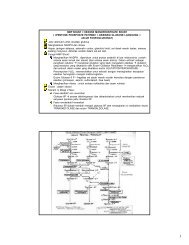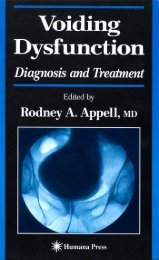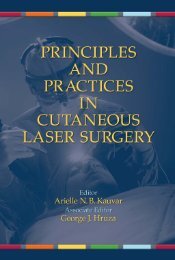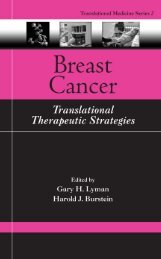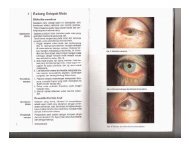International Handbook of Clinical Hypnosis - E-Lib FK UWKS
International Handbook of Clinical Hypnosis - E-Lib FK UWKS
International Handbook of Clinical Hypnosis - E-Lib FK UWKS
Create successful ePaper yourself
Turn your PDF publications into a flip-book with our unique Google optimized e-Paper software.
HYPNOSIS AND RECOVERED MEMORY 105<br />
From this client's point <strong>of</strong> view, hypnosis was a key factor in her improvement,<br />
because it allowed her to `remember and share intimate details very quickly'<br />
Smith, 1996, p. 124). Notably, however, Cindy made no effort to corroborate her<br />
hypnotically retrieved memories <strong>of</strong> the events at the neighbour's house. Indeed,<br />
Smith 1996) acknowledged that `in the absence <strong>of</strong> external veri®cation, there is no<br />
way to know whether Cindy's memories are authentic or not. They seemed<br />
compellingly real to her and to me, but from a scienti®c standpoint, ``seeming'' real<br />
is not con®rmation' p. 124). Nevertheless, these memories, whether accurate or<br />
inaccurate, appeared to <strong>of</strong>fer a plausible explanation for Cindy's symptoms, and<br />
served as a useful and ultimately successful `therapeutic leverage for recovery'<br />
Smith, 1996, p. 124).<br />
In commenting on this case, Lynn, Kirsch & Rhue 1996) argued that such<br />
memory recovery work can be a gamble, and that clinicians must consider both<br />
the risks and bene®ts <strong>of</strong> using hypnosis to recover memories; indeed, the<br />
emotional, societal, legal, and ®nancial stakes can be very high in such cases.<br />
Further, Lynn, Kirsch & Rhue 1996) <strong>of</strong>fered a number <strong>of</strong> recommendations to<br />
help clinicians decide whether the `bene®ts <strong>of</strong> attempting to access potentially<br />
forgotten life experiences outweigh the potential risk <strong>of</strong> distorted memories'<br />
p. 404). These include warning the client about the risk <strong>of</strong> memory distortion,<br />
exercising caution regarding the wording and implications <strong>of</strong> therapeutic suggestions,<br />
and evaluating the credibility <strong>of</strong> memories recovered during therapy. Such<br />
recommendations underscore the need for appropriate guidelines to assist in<br />
ensuring clinical practice is based on reasonable evidence and is consistent with<br />
acceptable standards.<br />
GUIDELINES FOR EVIDENCE-BASED PRACTICE<br />
Across a range <strong>of</strong> theoretical and therapeutic orientations, there is agreement<br />
about the need for evidence-based practice in the treatment <strong>of</strong> individuals who<br />
have or may recover memories <strong>of</strong> childhood abuse Beutler & Hill, 1992; Bowers<br />
& Farvolden, 1996; Courtois, 1995; Enns, McNeilly, Corkery & Gilbert, 1995;<br />
Fowler, 1994; Lindsay & Read, 1994; Knapp & VandeCreek, 1996; Lynn & Nash,<br />
1994; McConkey, 1997; Pope, 1996; Pope & Brown, 1996). To help in this regard,<br />
various statements and guidelines are available from pr<strong>of</strong>essional bodies American<br />
Medical Association, 1994; American Psychiatric Association, 1993; American<br />
Psychological Association, 1994; Australian Psychological Society, 1994;<br />
British Psychological Society, 1995) as well as from individuals Bloom, 1994;<br />
Bowers & Farvolden, 1996; Lynn, Kirsch & Rhue, 1996; McConkey & Sheehan,<br />
1995; Pope & Brown, 1996; Knapp & VandeCreek, 1996; Yapko, 1994). At a<br />
general level, Bowers & Farvolden 1996) highlighted two essential points, no<br />
matter what problem is being treated or what technique is being used. They<br />
argued that clinicians should not de®ne healing in terms that require themselves




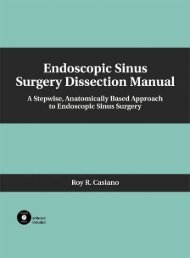
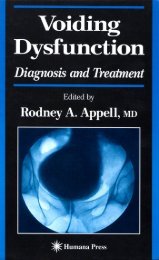
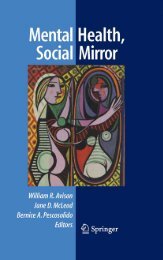
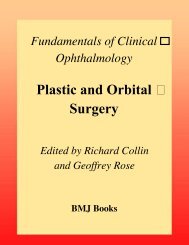
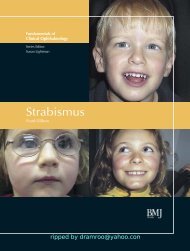
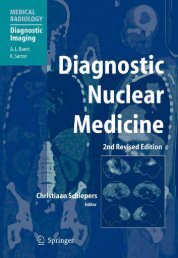

![SISTEM SENSORY [Compatibility Mode].pdf](https://img.yumpu.com/20667975/1/190x245/sistem-sensory-compatibility-modepdf.jpg?quality=85)
